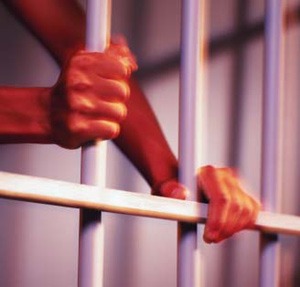NEW YORK – As the planned closing of the U.S. military’s detention centre at Guantanamo Bay draws nearer, human rights activists are raising questions about the treatment of detainees who will be transferred to the U.S. for trial. But while the media has focused virtually all its attention on these foreign prisoners held abroad, the government is already imprisoning in the U.S. American citizens awaiting trial on terror-related charges and under what their supporters describe as draconian conditions.
These people are being held under a Department of Justice rule known as Special Administrative Measures (SAMs), a rule dating from the Bill Clinton era and strengthened during the administration of George W. Bush.
SAMs are designed to keep dangerous inmates in custody from communicating with other terror suspects on the outside, and to prevent them from ordering violence or harming other inmates.
The measures were expanded after the terrorist attacks of Sep. 11, 2001, extending the limit to one year from 120 days and permitting the monitoring of communications between the inmates and their lawyers in certain circumstances.
The DOJ and its Bureau of Prisons say six people four charged with terror-related crimes – are currently being held under the SAMs rule. But one case appears to be attracting increasing attention.
This is the case of Syed Hashmi, a 29-year-old Pakistani immigrant and U.S. citizen who grew up in Queens, New York, and who has been held in solitary confinement in a federal prison in New York City for more than two years while he awaits trial on charges of providing material support to al Qaeda.
Hashmi, a Muslim, is on a 23-hour solitary-confinement lockdown and 24-hour surveillance including when he showers and goes to the bathroom. He was not allowed family visits for months. Now, he can see one person for an hour and a half, every other week.
He is permitted to write one letter a week to a single member of his family, but he cannot use more than three pieces of paper per letter. Within his own cell, he is restricted in his movements and he is not allowed to try to talk guards or other inmates.
Hashmi is forbidden any contact – directly or through his attorneys – with the news media. He can read newspapers, but only those portions approved by his jailers – and not until 30 days after publication. He is forbidden to listen to news radio stations or to watch television news channels.
He is also under 24-hour electronic monitoring inside and outside of his cell. He is allowed one hour of recreation every day – which is periodically denied – and not given fresh air but must exercise alone inside a cage.
One of Hashmi’s Brooklyn College professors, Jeanne Theoharis, who has attended the hearings in his case, told IPS that Hashmi’s ”mental health appears to be deteriorating”. His attorneys are concerned that his extreme isolation ”will cause lasting psychological, emotional, and physical damage” to their client.
Theoharis, an associate professor of political science at the City University of New York’s Brooklyn College, was instrumental in organising a campaign to draw attention to the civil liberties and human rights concerns of Hashmi’s case that enlisted more than 550 signatories to petition the Justice Department protesting the conditions of Hashmi’s confinement and undermining his right to a fair trial.
Among them were Henry Louis Gates Jr. and Duncan Kennedy of Harvard; Seyla Benhabib of Yale; and Eric Foner and Saskia Sassen of Columbia.
Prosecutors have said that Hashmi’s friend, Junaid Babar, stayed at his London apartment for two weeks, while Hashmi was studying for a master’s degree in Britain. Babar stored luggage containing raincoats, ponchos, and waterproof socks in the apartment. Babar later delivered them to the third-ranking member of al Qaeda in Pakistan.
When, later in New York, a grand jury charged Hashmi with ”conspiracy to provide material support or resources to a foreign terrorist organisation,” the socks, ponchos, and raincoats became ”military gear”.
The government also charges that Hashmi let Babar use his cell phone ”to call other conspirators”. Hashmi says he had no idea whom Babar was calling.
Hashmi has denied that he was part of conspiracies to help al Qaeda, or that he ever gave support to anybody to pass on materials to the terrorist group.
He was initially arrested in London in 2006 as he prepared to board a flight to Pakistan and was then extradited to the U.S. He has been held in New York since the Memorial Day weekend, 2007.
Hashmi has no criminal record and no history of committing acts of violence.
In court in January 2009, Hashmi’s lawyers called the restrictions on Hashmi too severe and asked a federal judge to lift some of them, perhaps allowing Hashmi to have a cellmate or to exercise in fresh air.
But the judge denied a motion to consider the psychological impact of solitary confinement and ease the conditions of his detention. Hashmi’s trial is set for Nov. 30.
Hashmi’s friend Babar has pleaded guilty to five counts of material support of al Qaeda and has agreed to serve as a government witness in terrorism trials in Britain, Canada, and at Hashmi’s trial.
The Justice Department says Babar is the ”centrepiece” of its case against Hashmi. In return, under a plea bargain, Babar will likely get a reduced sentence. If Hashmi is convicted, he may be sentenced to 70 years behind bars.
Much of the evidence against Hashmi is classified. His lawyers have received CIA-level clearance to view it but may not discuss it with Hashmi or with other uncleared experts.
Sean Maher, one of his attorneys, has told the media that he is under ”severe limitations on what I can and can’t say”. Civil rights lawyer Lynne Stewart was convicted in 2005 for providing material support to a terrorist conspiracy for releasing a statement by imprisoned Sheik Omar Abdel Rahman to his followers in the outlaw Islamic Group. She is now appealing her conviction. Hashmi’s lawyer is under the same restrictions.
Maher also raised the issue of secrecy in federal court. ”One of the paramount issues that this case brings up, without talking about any specifics in this case, is the use of secrecy in modern courtrooms. And in our Article III court, which we’re all trying to get people in Guantanamo to, what is the role of secrecy? And what will secrecy’s role play in these cases that President Obama says he might bring into these courts? ”
As U.S. trials of GITMO detainees move closer to reality, these questions are likely to attract far wider interest.
As Prof. Corey Robin, another of Hashmi’s teachers at Brooklyn College, told IPS, ”The conditions of his confinement have not been changed since President Obama took office. As the nation looks backward to the Bush administration, it is imperative that we draw attention to abuses û particularly those within our federal prisons and courts û that continue under the Obama administration.”
By: William Fisher, AUSTRALIA.TO
http://www.australia.to/index.php?option=com_content&view=article&id=13968:rights-us-new-york-terror-detainee-in-draconian-conditions&catid=71:world-news&Itemid=301






